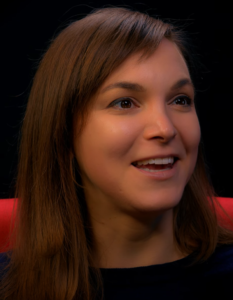Charitable Donations May Avoid Capital Gains Tax

Charitable Donations May Avoid Capital Gains Tax
Charitable donations may avoid capital gains tax if structured properly. Many family offices choose to be engaged in philanthropy at some level. Unfortunately, selling stocks and other securities in order to make a charitable donation often results in the need to pay capital gains tax. One way to further benefit the charity and avoid paying capital gains tax is to transfer ownership of an appreciated stock directly to a charitable organization[1].
For example, if you thinking of selling $100,000 worth of stock to make a charitable donation, you could either sell the stock and donate cash, or donate the stock directly to the organization.
Should you decide to sell $100,000 of stock and donate the cash proceeds, you must first determine how much capital gain you will accrue from the sale. If you originally bought your stock for $20,000 and your capital gain’s tax rate is 30%, you would have an $80,000 gain, of which, you would owe a 30% tax of $24,000. After paying your tax bill, you’d effectively have $76,000 left of your original $100,000 to donate to the charitable organization.
Or, you can consider the second option: donating stock directly to the charitable organization. If you donate your stock worth $100,000 directly to the charity, (assuming you’ve held the stock for more than one year), there would be no sale and therefore, no capital gain to be taxed. Donating stock instead of cash would result in the charity receiving an additional $24,000. Not only would the charity receive more, they’d also receive it in the form of stock, which can increase in value, pay dividends, etc.
While this seems like a great way to skirt the tax man, we recommend speaking to your tax advisor before making any kind of donation of stock or other liquid assets. There are certain exceptions to this rule which may limit your deduction such as the type of asset you are donating or whether the charity is qualified as determined by the IRS.[2]
Selecting the right type of asset to donate is also important. You should avoid donating stocks if their sale would result in a capital loss. Donating a stock that currently has a fair market value lower than its basis may cause you to miss out on offsetting other capital gains with a capital loss.
Section 1202 stock, also known as qualified small business stock, is another asset that you should avoid transferring to charitable organizations. Qualified small business stock (QSBS) is a special provision in the tax code that rewards investors for investing their money in early stage companies. If the stock is held for more than 5 years, 100% of the first $10 million of gain is taxed at an effective rate of 0%. That means it’s tax free! The tax-free gain is a strong reason to choose to donate another appreciated stock over QSBS.
If you have any questions on charitable donation tax strategies or if you’re in need of objective tax and family office advice (we never sell investments), please consider contacting us here at Info@GROCO.com. Or, visit our website at www.GROCO.com to learn more about us. Unfortunately, we no longer give advice to other tax professionals gratis.
We hope you found this article about charitable donations may avoid capital gains tax helpful. We encourage philanthropy and other worthwhile social endeavors whenever we can.
To receive our free newsletter, contact us here.
Subscribe to our YouTube Channel for more updates.
Very considerately yours,
The GROCO, GROCO Tax, GROCO Technology, GROCO Advisory Services, GROCO Consulting Services, GROCO Relationship Services, GROCO Consulting/Advisory Services, GROCO Family Office Wealth, and GROCO Family Office Services teams.
[1] https://www.irs.gov/publications/p526
[2] https://www.irs.gov/publications/p526
Restoring the California Dream | Lenny Mendonca
Interview transcript of Lenny Mendonca for the American Dreams Show, “Restoring the California Dream”: Alan Olsen: Can you share a little about your background? Lenny Mendonca: I went from growing up on a dairy farm in Turlock California milking cows to Harvard where I majored in economics and government. From there I went…
California, Who’s Really Running the Government? | David Crane
Interview transcript of David Crane, “California, Who’s Really Running the Government?”, by Alan Olsen, Host of the American Dreams Show: Alan Olsen: Can you share a little about your background? David Crane: I was born and raised in Denver and graduated from public high school out there. I graduated from the University of Michigan…
How Hiring An Esquire Is Revolutionizing Hiring For Contract Attorneys | Julia Shapiro
Interview transcript of Julia Shapiro, “How Hiring an Esquire is Revolutionizing Hiring for Contract Attorneys”, by Alan Olsen, Host of the American Dreams Show: Alan Olsen: Can you share a little about your background? Julia Shapiro: I was and am an attorney and I practiced at a large commercial litigation firm. I went pretty…
Allen Miner – SunBridge Group
Interview transcript of Allen Miner, SunBridge, by Alan Olsen, Host of the American Dreams Show: Alan Olsen: Welcome back and visiting here today with Allen Miner. He’s the CEO and founder of the Sunbridge group. Welcome to today’s show. Allen Miner: Great to be here. Alan Olsen: So Alan for the listeners, can you…




